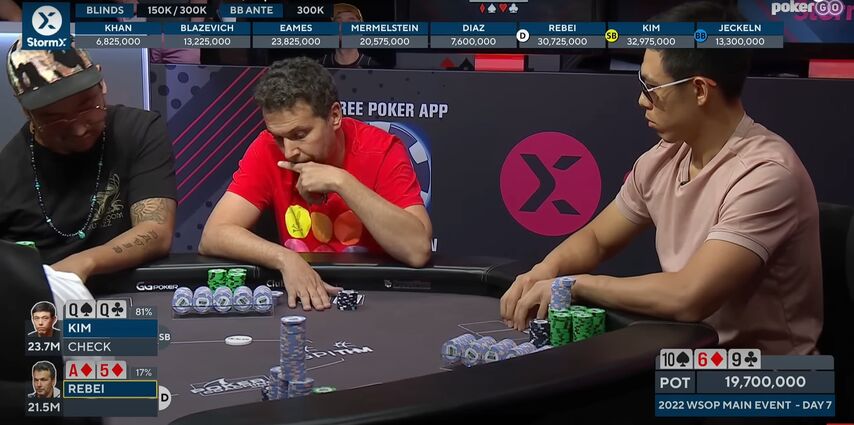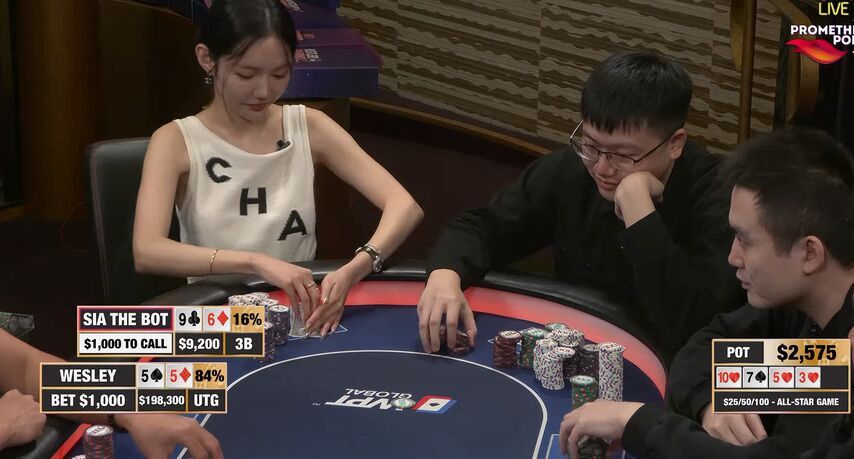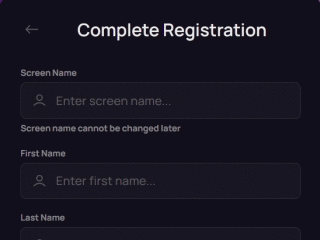What are tells in poker and can they be used to give you an advantage?
A tell is anything that reveals information about your opponent’s hand. A tell could be anything from heavy breathing to nervous fidgeting. Tells can be extremely useful in live poker, but much more difficult to use in online poker.
But are tells in poker reliable? Can you really pick up information from the movements and demeanor of your opponents? The answer is, yes, but not with 100% reliability.
Opponents can also use reverse tells, which are acts or false tells that could fool an opponent into making the wrong move.
Can You Use Tells in Poker?
In poker movies like Rounders or Casino Royale, the main character is able to make spectacular moves using a tell from their opponents.
Don’t go into a poker game expecting that you can use only instinct and reading faces to make decisions. Tells should be something you use to supplement your thought process. They can add to your strategy – but don’t rely completely on them.

Some new poker players can be read like a book. The excitement and adrenaline can be difficult to control, especially when real money is at stake. Over time, players become more stoic and their “poker face” becomes an unreadable mask. You can see what we mean by looking at these photos of Patrik Antonius.
Tells can be useful, but experienced players will rarely show you any. As you play against better opponents, you’ll find tells grow less and less useful.
Online poker players focus less on tells and more on the information they get from bets and other actions. If you’re not playing online already, these sites are some of the best we can recommend.
- GipsyTeam's unique promotions
- Help with deposits and cashouts
- Access to private freerolls
- Round-the-clock support
- GipsyTeam's unique promotions
- Help with deposits and cashouts
- Access to private freerolls
- Round-the-clock support
- GipsyTeam's unique promotions
- Help with deposits and cashouts
- Access to private freerolls
- Round-the-clock support
- Уникальные акции от GipsyTeam
- Помощь с депозитами и кешаутами
- Доступ в закрытые фрироллы
- Круглосуточная поддержка
- Уникальные акции от GipsyTeam
- Помощь с депозитами и кешаутами
- Доступ в закрытые фрироллы
- Круглосуточная поддержка
- GipsyTeam's unique promotions
- Help with deposits and cashouts
- Access to private freerolls
- Round-the-clock support
- Уникальные акции от GipsyTeam
- Помощь с депозитами и кешаутами
- Доступ в закрытые фрироллы
- Круглосуточная поддержка
- GipsyTeam's unique promotions
- Help with deposits and cashouts
- Access to private freerolls
- Round-the-clock support
- GipsyTeam's unique promotions
- Help with deposits and cashouts
- Access to private freerolls
- Round-the-clock support
- GipsyTeam's unique promotions
- Help with deposits and cashouts
- Access to private freerolls
- Round-the-clock support
- GipsyTeam's unique promotions
- Help with deposits and cashouts
- Access to private freerolls
- Round-the-clock support
- GipsyTeam's unique promotions
- Help with deposits and cashouts
- Access to private freerolls
- Round-the-clock support
- GipsyTeam's unique promotions
- Help with deposits and cashouts
- Access to private freerolls
- Round-the-clock support
- GipsyTeam's unique promotions
- Help with deposits and cashouts
- Access to private freerolls
- Round-the-clock support
- GipsyTeam's unique promotions
- Help with deposits and cashouts
- Access to private freerolls
- Round-the-clock support
- GipsyTeam's unique promotions
- Help with deposits and cashouts
- Access to private freerolls
- Round-the-clock support
- GipsyTeam's unique promotions
- Help with deposits and cashouts
- Access to private freerolls
- Round-the-clock support
- GipsyTeam's unique promotions
- Help with deposits and cashouts
- Access to private freerolls
- Round-the-clock support
- GipsyTeam's unique promotions
- Help with deposits and cashouts
- Access to private freerolls
- Round-the-clock support
- GipsyTeam's unique promotions
- Help with deposits and cashouts
- Access to private freerolls
- Round-the-clock support
- GipsyTeam's unique promotions
- Help with deposits and cashouts
- Access to private freerolls
- Round-the-clock support
- GipsyTeam's unique promotions
- Help with deposits and cashouts
- Access to private freerolls
- Round-the-clock support
- Уникальные акции от GipsyTeam
- Помощь с депозитами и кешаутами
- Доступ в закрытые фрироллы
- Круглосуточная поддержка
- GipsyTeam's unique promotions
- Help with deposits and cashouts
- Access to private freerolls
- Round-the-clock support
- GipsyTeam's unique promotions
- Help with deposits and cashouts
- Access to private freerolls
- Round-the-clock support
- GipsyTeam's unique promotions
- Help with deposits and cashouts
- Access to private freerolls
- Round-the-clock support
- GipsyTeam's unique promotions
- Help with deposits and cashouts
- Access to private freerolls
- Round-the-clock support
- GipsyTeam's unique promotions
- Help with deposits and cashouts
- Access to private freerolls
- Round-the-clock support
- GipsyTeam's unique promotions
- Help with deposits and cashouts
- Access to private freerolls
- Round-the-clock support
- Уникальные акции от GipsyTeam
- Помощь с депозитами и кешаутами
- Доступ в закрытые фрироллы
- Круглосуточная поддержка
- GipsyTeam's unique promotions
- Help with deposits and cashouts
- Access to private freerolls
- Round-the-clock support
- GipsyTeam's unique promotions
- Help with deposits and cashouts
- Access to private freerolls
- Round-the-clock support
- Уникальные акции от GipsyTeam
- Помощь с депозитами и кешаутами
- Доступ в закрытые фрироллы
- Круглосуточная поддержка
- GipsyTeam's unique promotions
- Help with deposits and cashouts
- Access to private freerolls
- Round-the-clock support
- Уникальные акции от GipsyTeam
- Помощь с депозитами и кешаутами
- Доступ в закрытые фрироллы
- Круглосуточная поддержка
- Уникальные акции от GipsyTeam
- Помощь с депозитами и кешаутами
- Доступ в закрытые фрироллы
- Круглосуточная поддержка
- GipsyTeam's unique promotions
- Help with deposits and cashouts
- Access to private freerolls
- Round-the-clock support
- GipsyTeam's unique promotions
- Help with deposits and cashouts
- Access to private freerolls
- Round-the-clock support
- GipsyTeam's unique promotions
- Help with deposits and cashouts
- Access to private freerolls
- Round-the-clock support
- Уникальные акции от GipsyTeam
- Помощь с депозитами и кешаутами
- Доступ в закрытые фрироллы
- Круглосуточная поддержка
- GipsyTeam's unique promotions
- Help with deposits and cashouts
- Access to private freerolls
- Round-the-clock support
- GipsyTeam's unique promotions
- Help with deposits and cashouts
- Access to private freerolls
- Round-the-clock support
- GipsyTeam's unique promotions
- Help with deposits and cashouts
- Access to private freerolls
- Round-the-clock support
- GipsyTeam's unique promotions
- Help with deposits and cashouts
- Access to private freerolls
- Round-the-clock support
- Уникальные акции от GipsyTeam
- Помощь с депозитами и кешаутами
- Доступ в закрытые фрироллы
- Круглосуточная поддержка
- GipsyTeam's unique promotions
- Help with deposits and cashouts
- Access to private freerolls
- Round-the-clock support
- GipsyTeam's unique promotions
- Help with deposits and cashouts
- Access to private freerolls
- Round-the-clock support
5 Common Tells in Poker + What They (Might) Mean
These tells are well-known in the poker community. It’s good to be aware of them because you might see some of your less-experienced opponents showing these tells.
When law enforcement professionals try to draw conclusions from body language or behavior, they usually try to look for “clusters”. That means, more than one sign, not just a single tell on its own.
There’s no reason this principle can’t be applied to poker. If you can see more than one of these tells, it could make your information more reliable.
Self-Soothing Behavior
When humans become uncomfortable, anxious, or feel threatened, we make self-soothing movements. Experienced players remain still and relaxed, but beginners might subconsciously show self-soothing body language.
This includes:
- Hands on the neck or over the mouth
- Folding the arms over the chest
- Raising the shoulders
- Holding one hand in the other
Self-soothing behavior is an instinctual way that we comfort ourselves during stressful moments.
This kind of tell can mean that a player doesn’t hold strong cards, but it’s not so simple. A beginner might feel anxious if they hold strong cards and are excited that they might be called.

Table Talk
When your opponent suddenly starts getting chatty on the river, you might be concerned. If you are playing against an amateur or inexperienced player, this is the last thing you want to hear. When someone has the confidence to talk during a hand, it might mean they feel very strong in the hand.
Players generally know that table talk appears confident, so sometimes, they might try to use it for a bluff. However, this is a dicey prospect, since their words and tone of voice can get them caught. Just by speaking up, they might get the opposite reaction they wanted.
If you’re not experienced with table talk, it’s best not to attempt it. You’ll just be giving away information for free.
Making Actions Quickly or Slowly
If a player usually acts at a normal pace, then that pace changes, that might be a tell. If a player has a simple decision to make, like when they have a very strong hand, they might not think long before they bet. Of course, that’s just an example, but it’s one that you may see.
This kind of “timing tell” can be seen in live and online poker. It’s actually one of the only tells that you can get from online poker games. The largest sources of information are bet sizing, actions, and prior history, but timing tells can definitely be used as well.
You’ll have to keep your eye out and try to notice when your opponent is checking, betting, or raising at an abnormal speed – and that’s easier said than done.
Experienced players can also use insta-bets or slow bets to confuse their opponents. It’s not always going to be clear what a super quick or super slow bet means, so you should combine this tell with another.
If you’re playing online, you should try to make your bet timing consistent. Check the timer once the action gets to you and try to make your actions with similar delays. A freeroll is a good place to give this a try. There’s no investment, but you can still book a win and get real cash prizes.
Glancing at Their Chip Stack
Let’s say you make a bet and an opponent instantly starts glancing down at their stack of chips. Usually, they aren’t checking their chips to see if they can call. This instinctual glance downwards at their chips can mean they are sizing up a raise or thinking about going all-in.
A player who is feeling weak or pondering a call usually doesn’t need to look at their chips. Players tend to size up their chip stack when they are strong and think about how much value they can get.
As with all of these tells, this isn’t the case 100% of the time.
Double-Checking Cards
In general, players who check their hole cards repeatedly aren’t holding strong cards.
Imagine you have pocket Aces. Would you want to look down at your hole cards multiple times and draw attention to yourself? Probably not.
Looking down slowly at the cards after the flop could be absent-minded behavior, or perhaps a hopeful glance to check hand strength, but it’s usually not a sign of strength.
Players also check their cards to confirm the suits or double-check the hand combination they think they have made. In both of these cases, the player might check once, but usually no more than a single time.


























